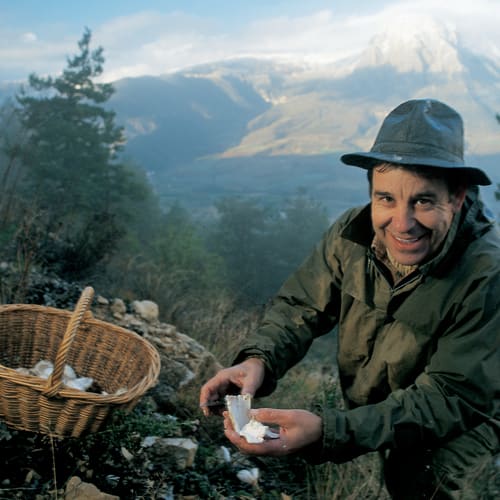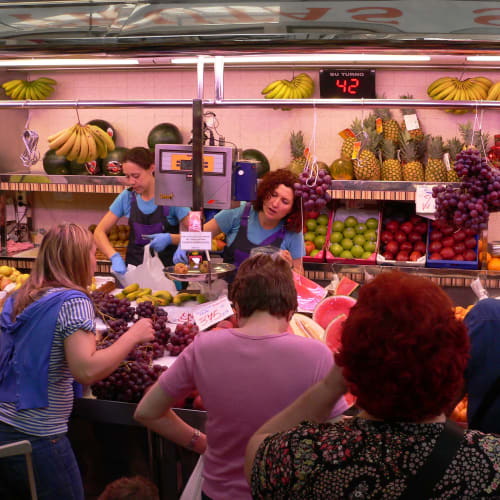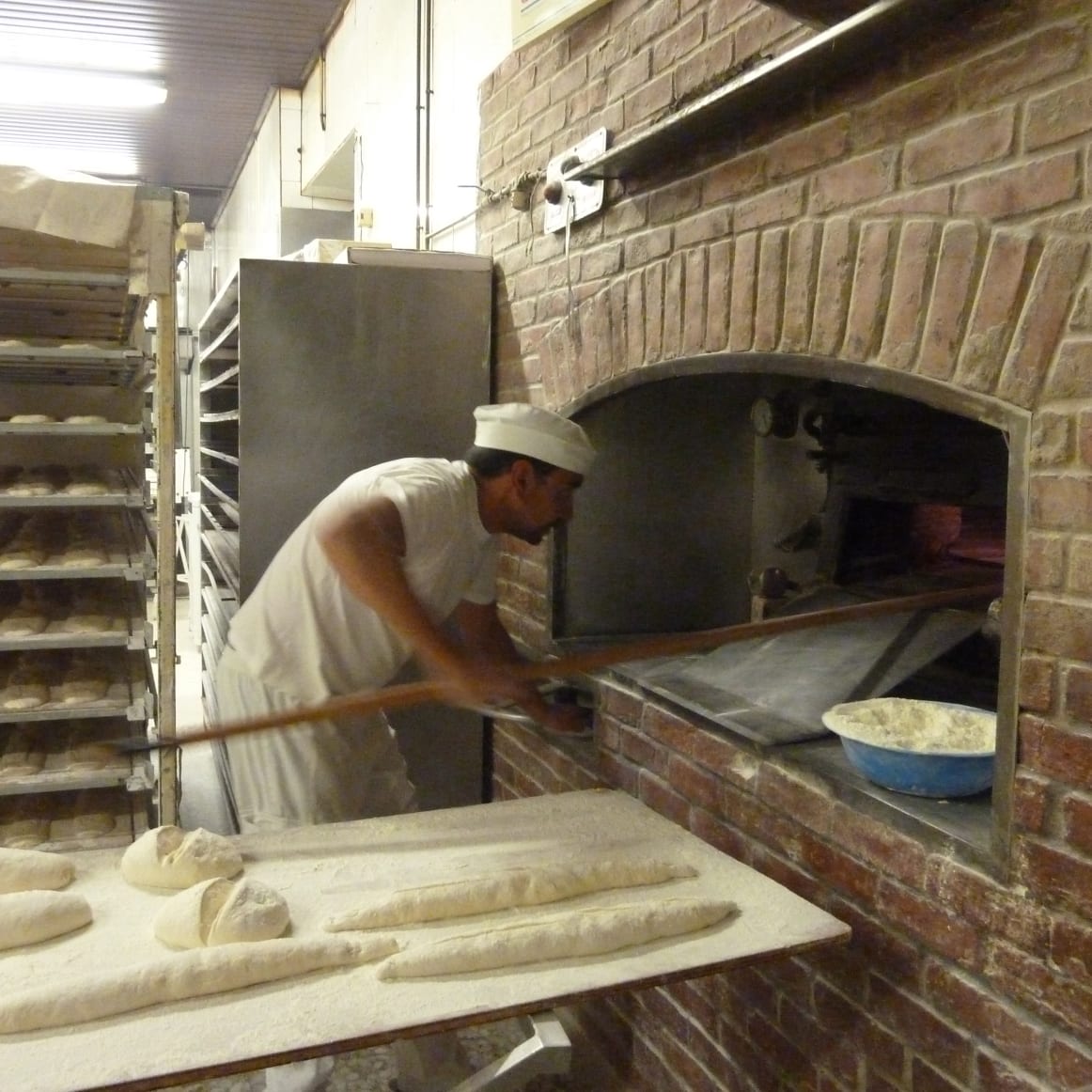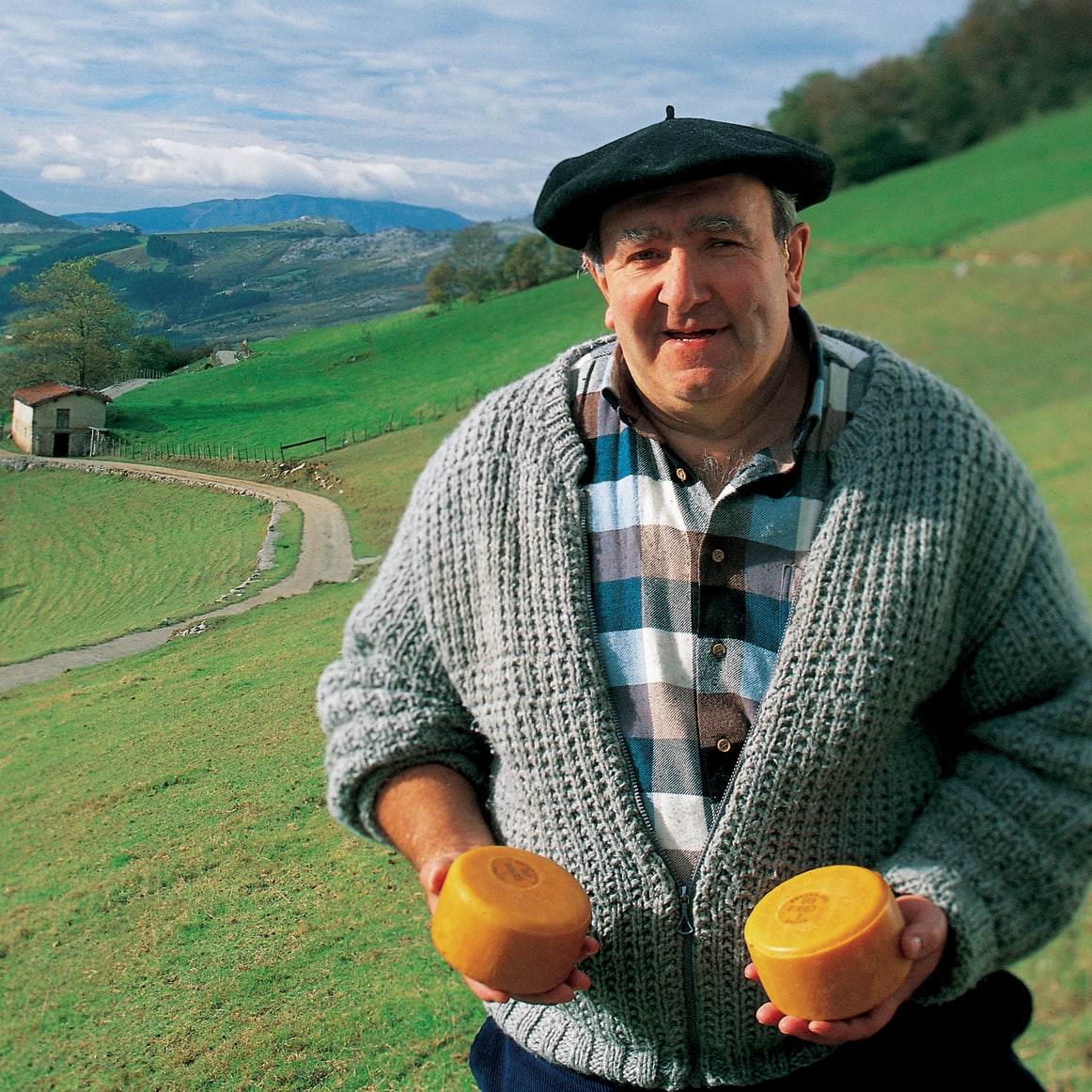A Culinary Revolution in Reverse
October 2007




Spain is witnessing a culinary revolution in reverse. After all the years of commercial progress, Spaniards are now seeking to revive their traditional heritage. It took only two or three resilient generations to overcome the tragedy of the early 20th Century: the Civil War and exclusion from European recovery after WWII. What they have accomplished is an amazing turn-around.
Forty years ago, my wife Ruth and I began driving the byways of Spain. We have many fond memories of riding in our tiny SEAT 600, bouncing along the back roads. Today we visit the hills and valleys of Spain to discover for ourselves the many artisans who have preserved their traditional ways. With the new prosperity, the roads are infinitely improved.

The conviction of traditional Spanish artisans assured that their handiwork would survive many lean decades. Their sense of integrity enabled them to resist the temptations of commercialism. Now they flourish with the support of lovers of good food, in Spain and throughout the world.
Our sons Tim and Jonathan just returned from a trip to El Bierzo and Galicia. In one small village they met a young couple who produce jars of rare wild mushrooms preserved in olive oil. Each evening during the harvest season they make the rounds to the cottages of old ladies to collect mushrooms. The local women gather mushrooms from special sites in the hills as their forbears have known for centuries.
A day or two later my sons drove along the rugged seashore of Galicia in order to meet a couple who produce extraordinary tinned seafood. Each night about 3:00AM they get up to telephone fishermen at sea in order to anticipate and purchase the very freshest and best seafood which will arrive at dawn.
When I was on the road in rural Spain in 1965, I remember seeing a man behind a mule, with his small son by his side – teaching him how to plow the land; or a farmer from Galicia guiding a wooden wagon that was pulled by a team of powerful oxen. They had rabbit fur pelts placed between their horns as a means of protection from the weather.
In Andalucía, I remember men buzzing off to work on their "motos" with saddlebags woven out of esparto grass straddling the rear fender. In earlier days, they would have ridden burros. Within one of saddlebags was tucked a whitewashed terra cotta jug (tinaja) that served as the worker's source of water as he worked in the fields. Occasionally Ruth and I would come across the painted wagons of a Gypsy caravan, with the colorfully dressed women waving hello.
At home in El Puerto de Santa María we would take empty 1-liter Coke bottles to the bodega down the street, where they would be refilled from a large sherry cask. In the morning, we would go to the Buen Pastor Bakery and get a loaf of hand-made bread – still warm from the oven. The municipal market was overflowing with local potatoes, spinach, oranges and fresh caught fish.
At the time, it was interesting and romantic to dip into a pre-industrial society and enjoy the way people lived centuries ago. However, for the people of Spain it was a time of deprivation and suffering. Their modern economy had been devastated by the 1936-1939 Civil War and ensuing World War II isolation – even from the Marshall Plan. To us the oxen were quaint; to them it meant they could not afford a tractor – or, more to the point, rarely had a decent meal.

As people became more prosperous in the 1970's and 1980's, they replaced their oxen and mules with tractors. Workers could afford small automobiles to replace their motos. As women began to work outside the home, they enjoyed the efficiency and convenience of air-conditioned Hypermercados. These supermarkets began to crowd out the local farmers' markets, which are only open in the morning.
Local bakers began putting preservatives in the dough so that the loaves they baked before dawn would stay fresh until the evening when people stopped by on their way home. Their business declined as people bought commercial pre-sliced Bimbo, which would stay "fresh" for days. It is true that the quality of food declined, because artisan items were inefficient to make. Nevertheless, the quality of life was much better for many people.
Now their prosperity is at a point that Spaniards appreciate artisan quality products and are willing to pay for them. Jamón Ibérico used to be a delicacy restricted to the wealthy, but now it is available at the neighborhood tapas bar. Spaniards are able to appreciate the traditional hand made food of their past, and they are willing to support the artisans who have preserved it.
Perhaps the transportation revolution is the most amazing thing of all. Just imagine, an old woman in El Bierzo gathers mushrooms in the woods, or a shepherd brings to his village the cheeses he made in the high country of the Picos de Europa and in a matter of weeks we can enjoy their handiwork in our homes in America.
Tu amigo,
Don

